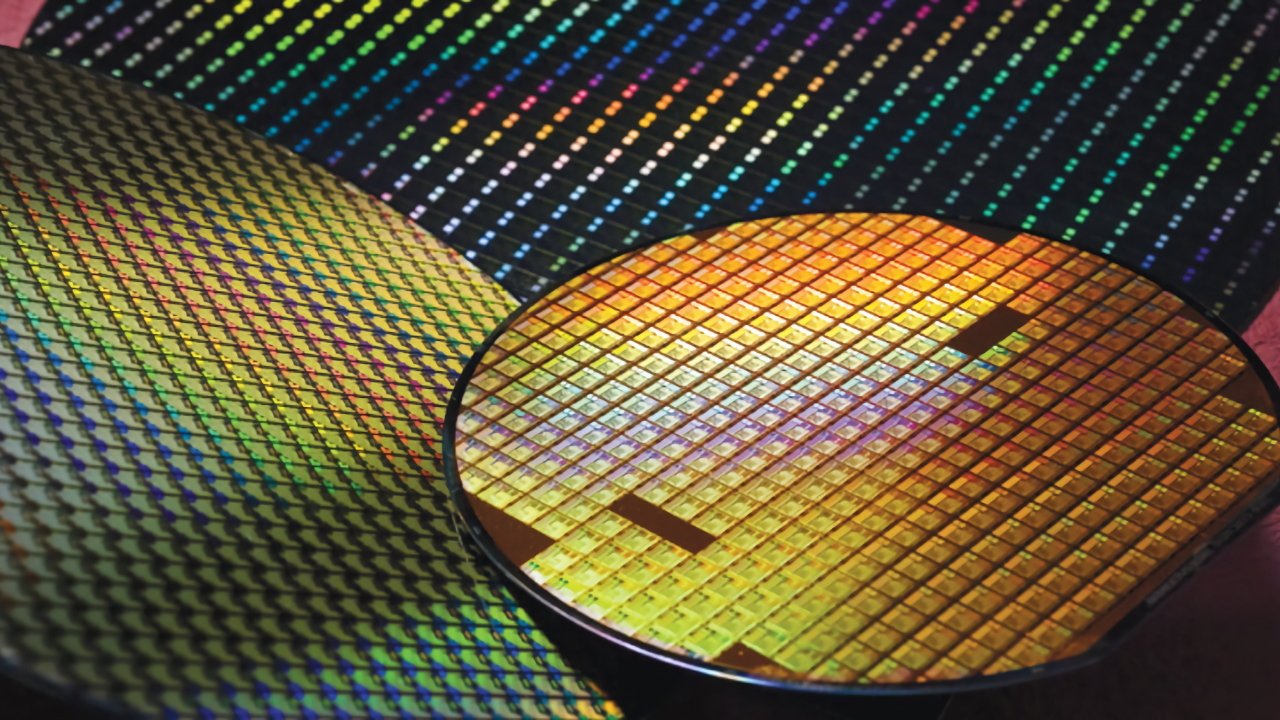Apple has 'sweetheart deal' with TSMC that saves it billions of dollars
TSMC's new 3nm manufacturing process has around a 30% failure rate but under exclusive terms, the company only charges Apple for working processors.

Processors are made in wafers. (Source: TSMC)
Apple has long had what its COO Jeff Williams has described as an "intense" relationship with TSMC. Now a new report from The Information claims that this relationship is unique out of all of TMSC's other clients, and all other processor manufacturers too.
Specifically, TSMC does not charge Apple the complete cost when it produces a wafer containing hundreds of processors. Instead, it only charges the company for what The Information says are referred to as "known good dies."
Ordinarily, the price difference is not statistically significant because typically some 99% of processors on a TSMC wafer are good. But at present, TSMC is only seeing between 70% and 80% success rate with its new 3nm processor, which it began mass production of in December 2022.
That will improve, but as well as Apple profiting by not paying for failed processors, so TSMC profits, too.
It's previously been reported that Apple has bought out TSMC's 3nm production capacity. production capacity. But The Information reports that TSMC is able to develop newer technologies specifically because Apple is willing to order new processors early, and in volume.
So Apple is helping fund the development of 3nm processors. Once the failure rate improves, and TSMC's capacity increases, the company will be able to sell 3nm processors to other companies who do not have such a sweetheart deal.
It's been estimated that moving to a 3nm manufacturing process means that the forthcoming iPhone 15 could be 35% more power efficient because of the new technology.
Neither Apple nor TSMC have commented publicly.
Read on AppleInsider

Comments
The likely suspect, for enforcing such terms, probably was Intel, when they had monopoly power over the PC industry.
It's not that TSMC would directly charge a customer for a defective chip, if each chip was $100 based on a 100% yield and they had an 80% yield, they'd just charge 25% more ($125) per chip:
1000 chips x $100 = $100k
800 chips x $125 = $100k
Apple's premium devices can easily absorb that price increase.
Apple charges (minus RAM upgrades) M2 -> M2 Pro $300 -> M2 Max $500 -> M2 Ultra $1400
They are doubling the chips at each stage, which multiplies the risk of failure. 90% on M2 -> 81% M2 Pro -> 65% M2 Max -> 42% M2 Ultra. It probably doesn't drop that low but somewhere around 60% for the most dense chips is reasonable and some of those costs have to get passed on in the price or they wouldn't be profitable to make. Apple's prices are still a far cry from Intel's $7k+ per CPU and clearly they have an advantage here helping TSMC advance their nodes faster to give them a competitive advantage in the industry.
That way they stay up to date not like e.g. German car manufacturers (or as I call them tin folders as they essentially manufacture the hull around 3rd party products ), that outsourced all the areas of innovation to their suppliers and are now wondering how they fell behind.